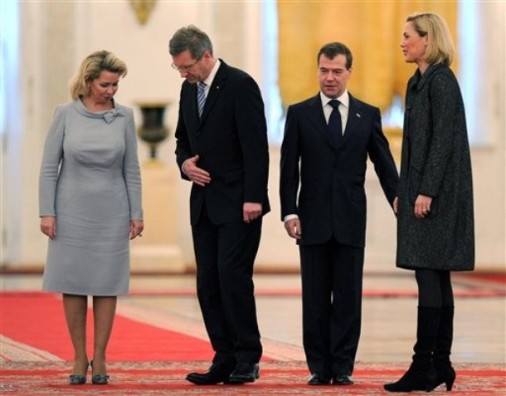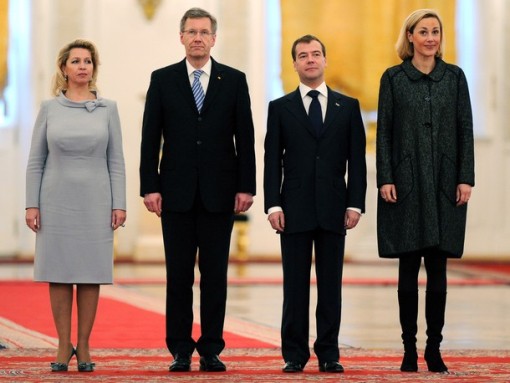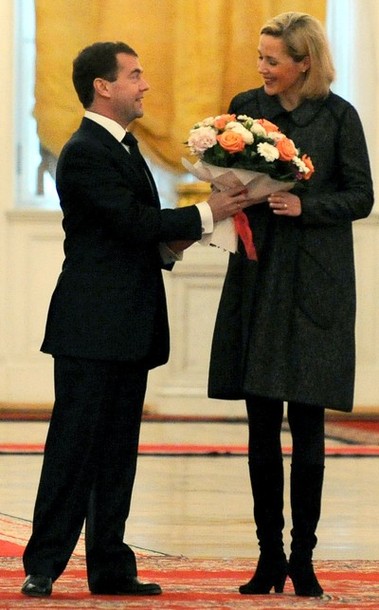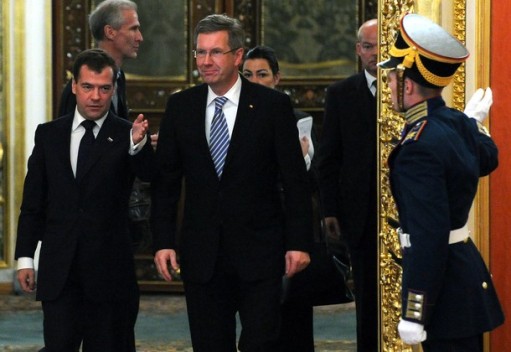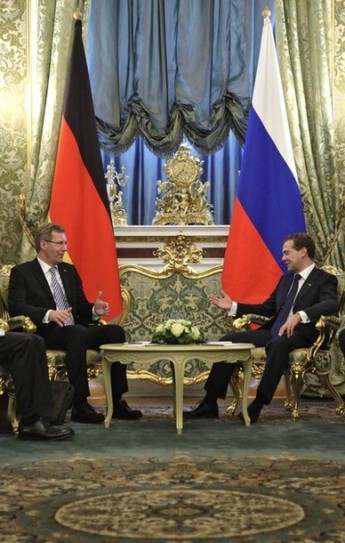
German Chancellor Angela Merkel (L) listens to Italian Prime Minister Silvio Berlusconi upon his arrival at the Chancellery in Berlin January 12, 2011. REUTERS/Fabrizio Bensch
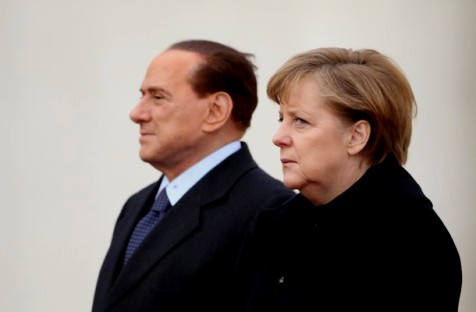
German Chancellor Angela Merkel welcomes Italian Prime Minister Silvio Berlusconi at the Chancellery (Bundeskanzleramt) on January 12, 2011 in Berlin, Germany. Berlusconi is in Berlin to participate in German-Italian governmental consultations, and a major topic of discussion will be measures for stabilizing the Euro. (Photo by Sean Gallup/Getty Images)
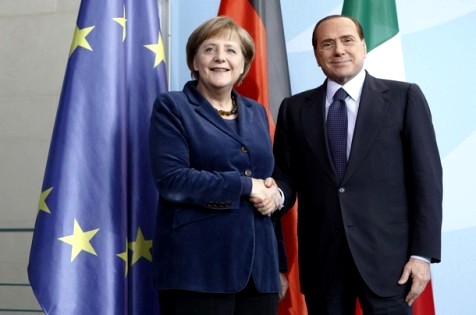
German Chancellor Angela Merkel and Italian Prime Minister Silvio Berlusconi shake hands as they pose for the media after they address a news conference following their bilateral talks at the Chancellery in Berlin January 12, 2011. REUTERS/Fabrizio Bensch
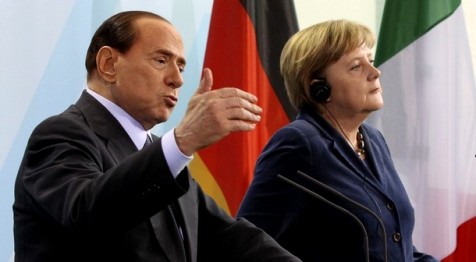
German Chancellor Angela Merkel and Italian Prime Minister Silvio Berlusconi address a news conference following their bilateral talks at the Chancellery in Berlin January 12, 2011. REUTERS/Fabrizio Bensch
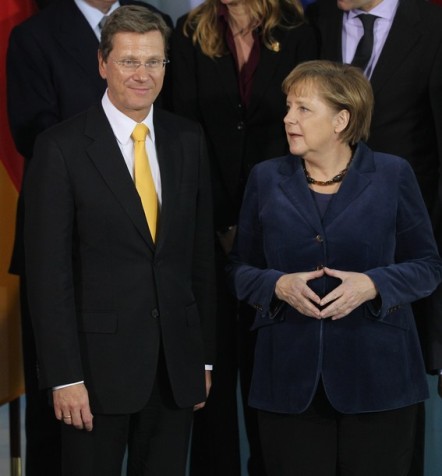
German Chancellor Angela Merkel and Vice Chancellor and Foreign Minister Guido Westerwelle arrive for a group photo of the Italian and German government delegations at the Chancellery (Bundeskanzleramt) on January 12, 2011 in Berlin, Germany. Berlusconi is in Berlin to participate in German-Italian governmental consultations, and a major topic of discussion will be measures for stabilizing the Euro. (Photo by Sean Gallup/Getty Images)
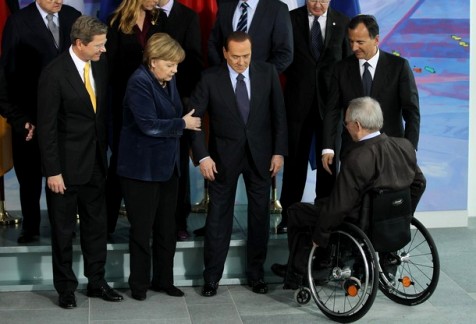
German Chancellor Angela Merkel takes Italian Prime Minister Silvio Berlusconi by the arm in order to allow space for wheelchair-bound German Finance Minister Wolfgang Schaeuble prior to a group photo of the two countries' delegations at the Chancellery (Bundeskanzleramt) on January 12, 2011 in Berlin, Germany. Berlusconi is in Berlin to participate in German-Italian governmental consultations, and a major topic of discussion will be measures for stabilizing the Euro. (Photo by Sean Gallup/Getty Images)










